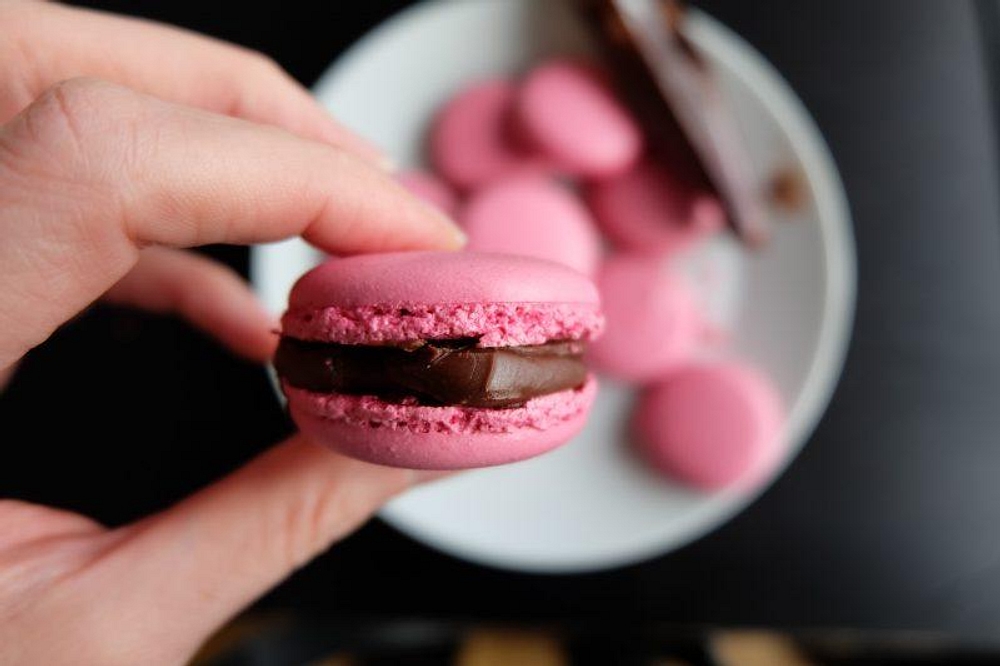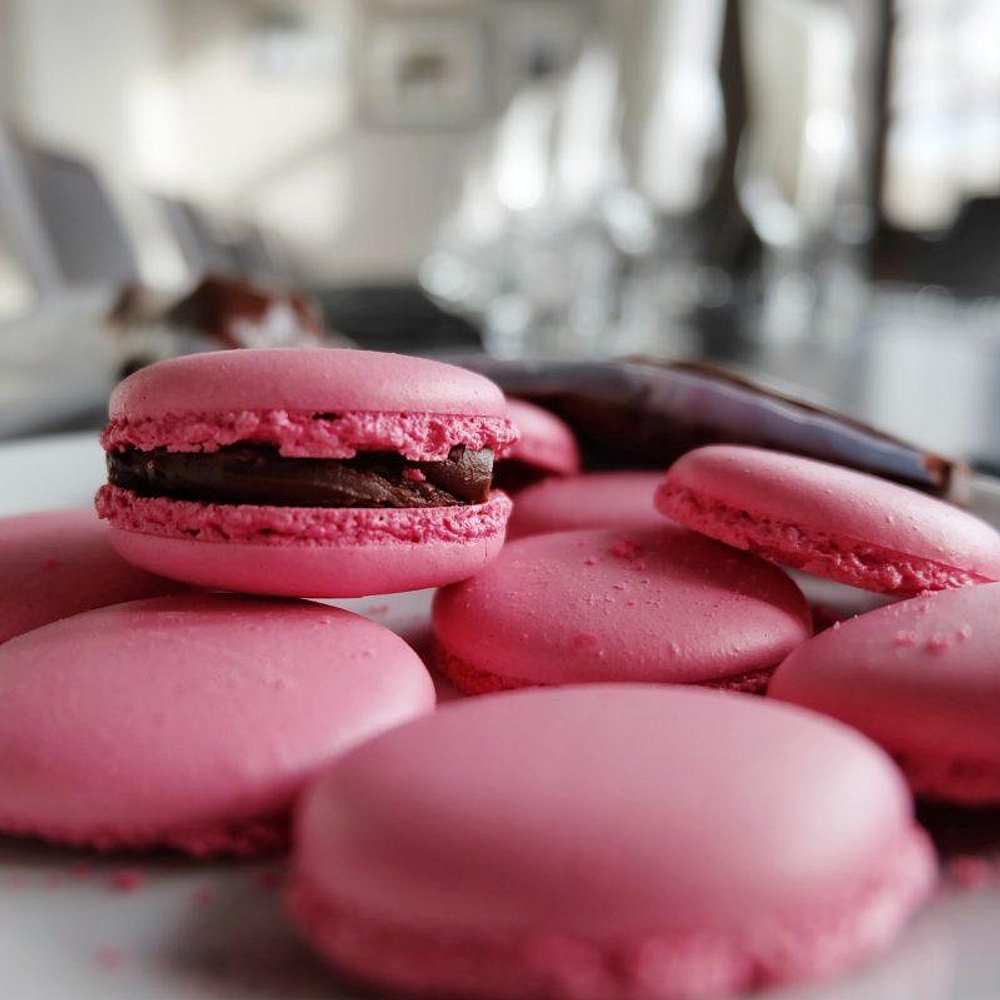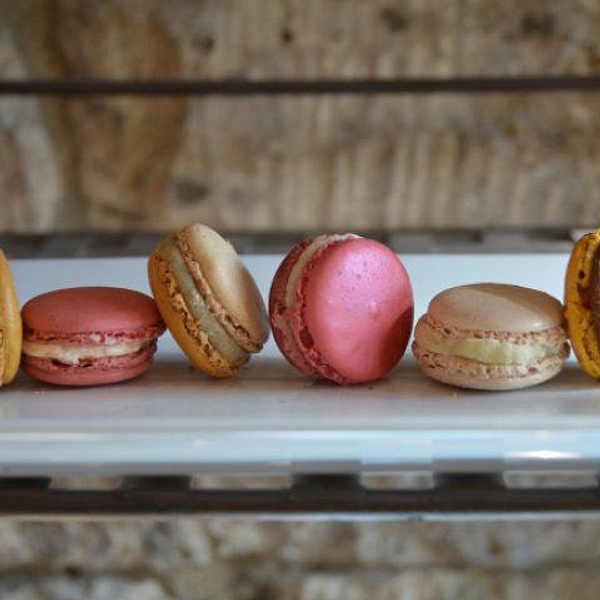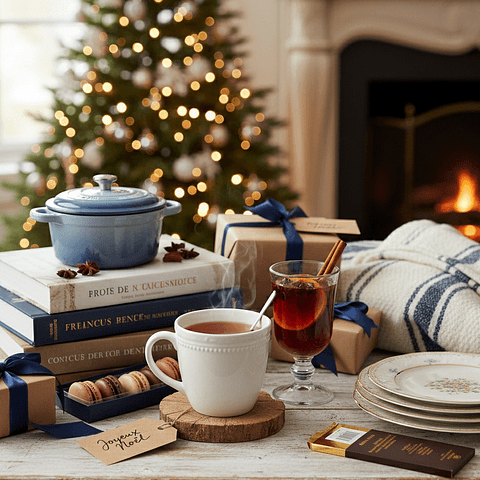Need more help at home? Check out our step by step instructional video class here
If you’ve ever made macarons before, you know how very finicky those
wonderfully delicious cookies can be! There are so many factors to consider from meringue techniques right down to the humidity in your kitchen (interestingly enough most problems come from the meringue!). With these little tips from our All Star Chefs though, you too can be a Macaron Master!
We’ve put together a few of the questions we get asked most often, to give you some pointers when you get round to making your own macarons.
Now let’s see what these chefs have to say!

I can’t find ground almonds. What is the difference between ground almonds and almond meal?
Check specialty cooking stores and even try looking in the bulk section. If you are still having trouble try online retailers like Amazon or King Arthur Flour.
Ground almonds and almond meal are actually the same thing- so don’t be discouraged when you can find one and not the other, they just try to confuse us with the different names.
If you’re not able to find ground almonds, then you can also just make your own by grinding blanched almonds in a food processor. Just don’t grind them too much or you’ll end up with almond butter, another delicious thing, but not so good for making macarons.
Why do I need to use aged egg whites?
It is best to use aged egg whites as they help to reduce the moisture content of the macarons, and give the macarons a more elastic texture.
If you’re not able to buy already aged egg whites, then you can just use your own eggs, separate the whites and leave them in a covered plastic bowl in the refrigerator for 1-2 days before using them.
Can I use boxed egg whites for the meringue?
Some countries do sell packaged egg whites, but to reduce the possibility of a failed meringue we would recommend using fresh egg whites that have been separated and preferably aged for 1 to 2 days. For the egg whites that you add to the almond flour and powdered sugar, it is absolutely ok to use boxed as these will not be whipped but rather made into a paste.
My batter is very stiff and there are peaks on top of the macarons.
This problem comes from when the meringue is made. Your batter should then be a lava-like consistency when you pipe it, but if your batter is stiffer than this, it may be because you have over-whipped the egg whites, so try whipping them a little less next time – they should just be reaching the stiff peaks stage when you add the cooked sugar. But be careful, as you also need to make sure your batter is not undermixed! If it is, then fold the batter a couple more times which will further deflate the meringue and lead to a smoother texture.
My batter is runny and the cookies spread a lot on the tray.
This problem also comes from the meringue. Make sure your egg whites are reaching stiff peak stage when you add the cooked sugar. Also make sure your sugar is cooked to the right temperature when you pour it onto the beaten egg whites. Then beat the meringue until it has cooled down to a pleasant temperature (slightly warm but not so hot that you can’t touch the bowl). This will ensure that your meringue (and the batter) has the right consistency. Also, be careful not to overmix the batter! When getting close to what you feel is the right texture, start to check the batter after every turn by either holding up the spatula to watch how the batter falls from it, or checking the movement in the bowl.
My batter is grainy and the resulting cookies are grainy too!
Your almond powder/flour may be too coarse. There are two solutions here. Sift the almond flour and remove the coarsest grains that do not go through the sieve. Note you may need to sift more almond flour to make up to the correct weight - as you have removed some of the coarser flour, you'll need to top it up with fresh powder!
You also have the option to put the almond flour in a food processor to get a finer grain before using.

The cooking process…
My macarons aren’t forming feet.
If your macarons do not form feet during the cooking process, then there must have been a problem when you made the meringue. Take a look at the answers above to make sure that you are making your meringue properly.
My macarons cracked on the top
When macarons crack, it can be the result of different things: a humid atmosphere, an oven that is not at the right temperature, a meringue that was not made in the correct way, piping technique, or a batter that was not mixed well – make sure that you see no meringue anymore in the batter when you’re done mixing.
Quite often, you’ll find that adjusting one of these elements will improve your results. As different atmospheres and different ovens can affect results, you will most likely have to go through a process of trial and error to work out which conditions are the best for producing macarons in your own home.
Start with your mix – have you cooked your sugar to the right temperature? Do you have the right consistency with your egg whites? Once you mix in your egg white, do you have the right consistency with your batter (can you form a ‘ribbon/beak’)?
Sometimes this can be a result of a piping problem as well. Be sure to hold the piping bag steady about a centimeter or so above the tray. Try not to move the bag up or down while piping. When it is the right size, release pressure on the bag and do a little swirl motion with the tip to cut off any peaks that have formed.
Check your oven – is the oven cooking to fast? Where is the heat coming from, top, bottom, or convection (we use convection in the school to heat evenly)?
Again, trial and error – don’t give up.
My macarons are hollow in the middle.
If your macarons end up being hollow in the middle, then this could be an indication that your oven temperature is too high. Your oven should be preheated to no higher than 320-330°F, and should stay stable throughout the cooking process. As mentioned above, different ovens can affect results, so try lowering the temperature of your oven if you find that your macarons are hollow.
Over whipping the meringue can also cause macarons to become hollow inside, so make sure that the meringue is just reaching the stiff peak stage when you add the cooked sugar to it.
My macarons are lopsided with a foot on one side, and none on the other.
This again can be the result of a couple of different things. The first (and most important) item to check is that you are piping with the bag held vertically (not angled) and about a centimetre from the tray. Also make sure that you have removed all the air bubbles from the macarons. You might need to bang the tray on the counter a couple more times. One last tip: let them rest just a bit longer before putting them in the oven and make sure to turn the tray halfway through baking.
My macarons still have the 'flick' on the top.
When piping, the best thing is to stop applying pressure to the piping bag BEFORE you 'flick' the end to finish the cookie. That way, you should have a less pronounced peak on the top even before baking, which should help it to disappear. So you pipe, stop, flick. Practice makes perfect!
Other Tips!
– Using a silpat will help the macarons maintain their round shape. With parchment paper, sometimes the moisture from the macaron batter will cause the paper to warp or wrinkle causing those beautifully piped macs to not be as round anymore. You can even buy silpats with handy circles on them for even piping.
– Open the oven a couple of times during baking to release the humidity.
– Once you’ve found a method for making macarons in your kitchen, be sure to write it down so you’re set for the next time!
- For easy matching, line up the macarons with their mate, one facing up, one facing down. Then pipe the filling on all the face up shells and bam, you’re ready to sandwich.
– Macarons are best the day after they are made as this allows all the flavors to meld to together and the shells to soften just a bit. Keep in the refrigerator for about a week or well wrapped in the freezer for up to a month. Just take them out a little bit before so they warm up to room temperature before digging in, for the best flavor.
Good luck!
Hopefully we have covered all the main sticking points when making macarons – good luck with your baking!

